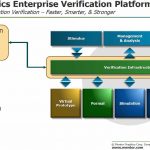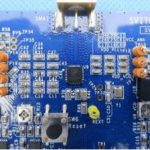Five minutes to ruin a reputation built over 20 years, as Warren Buffett put it, holds true in personal relationships. On the Internet of Things, reputations can disappear in five seconds. How do we move from merely intelligent Things to a level where devices have to be Trusted?… Read More
Electronic Design Automation
Mentor Extends Verification Offering!
With verification consuming more and more of the design cycle and the increasingly complex industry standard interfaces that are now common place, Verification IP (VIP) is again a trending topic. Back in my IP days the age old question was: Is it better to use VIP from the IP vendor? Because you know it will work, right? Or is it better… Read More
Apple Protects Its Designs With Custom Silicon And You Can Too
In the February 22-28 issue of Bloomberg Businessweek magazine, Johny Srouji, Apple’s senior vice president for hardware technologies, discusses Apple’s winning strategy of owning its own silicon. It began with the acquisition a Silicon Valley chip startup called P.A. Semi in April of 2008 and since then, Apple has never looked… Read More
Is Smart Bluetooth de facto standard for IoT Wearable, Beacons, Fitness and Health ?
Synopsys launch BTLE PHY IP, qualified by the Bluetooth Special Interest Group (SIG) and meeting compliance with the Bluetooth® Smart v4.2 specification. The company has built a partnership with Mindtree to provide a complete solution, integrating Synopsys’ Bluetooth Smart PHY IP and Mindtree’s production-proven BlueLitE… Read More
Design units come to faster Riviera-PRO release
For the latest incremental improvements to its Riviera-PRO functional verification platform, Aldec has turned to streamlining random constraint performance. The new Riviera-PRO 2016.02 release also is now fully supported on Windows 10 and adds a new debugger tool.… Read More
Verdi Update and NVIDIA on Verification Compiler
Synopsys hosted a lunch session on Thursday of DVCon. Michael Sanie of Synopsys opened the session, with a look back at the last DVCon where he had talked about Verification Compiler (VC) and extending the platform to Verification Continuum, which adds emulation and FPGA-based prototyping (HAPS – there was a very cool HAPS demo… Read More
Mentor at DVCon – Visualize This
Steve Bailey entertained us during lunch on Tuesday with a talk on debug and visualization in the Mentor platform. Steve is based in Colorado, so had to spend the first part of his talk gloating about their Super Bowl win, but I guess he deserves that.
On a more technical note, he showed us a familiar survey they had completed with the… Read More
Cadence is again the best EDA company to work for!
We wrote about the history of Cadence in preparation for our book “Fabless: The Transformation of the Semiconductor Industry” in 2012. EDA played a key role in enabling the fabless semiconductor revolution and Cadence was right there at the beginning. Famed EETimes editor Richard Goering helped us with the book and the Cadence… Read More
How China can Lead in the Semiconductor Industry
Since a few years China has been very aggressive in acquiring semiconductor companies around the world. Last year, Chinese government along with PE (Private Equity) and other investors in China announced an ambitious plan under which more than $150 billion were to be invested over next 5 to 10 years in developing semiconductor… Read More
Ajoy – History, Perspectives and Crossing the Chasm
EDAC hosted an event at DVCon this week where Jim Hogan interviewed Ajoy Bose (CEO of Atrenta prior to its acquisition by Synopsys). The nominal purpose was to talk about turning a venture into a valuable enterprise. This was covered but, in Jim’s way, it was really a more wide-ranging and personal interview. This is an abstract of… Read More









A Century of Miracles: From the FET’s Inception to the Horizons Ahead